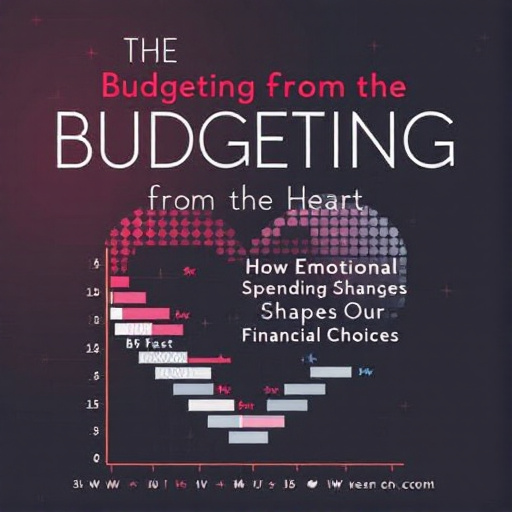Featured Articles
- 8 Essential Cognitive Biases That Sabotage Your Budget and How to Outsmart Them for Financial Success
- "Budgeting Beyond Basics: How Emotions Influence Your Spending Habits"
- Budgeting from the Heart: How Emotional Spending Shapes Our Financial Choices
- "Cryptocurrency and Budgeting: How Digital Coins are Shaking Up Monthly Money Management"
- "Cryptocurrency and Budgeting: How Digital Currency Could Revolutionize Your Spending Habits"
"Cryptocurrency and Budgeting: How Digital Currency Could Revolutionize Your Spending Habits"
"Cryptocurrency and Budgeting: How Digital Currency Could Revolutionize Your Spending Habits"
Cryptocurrency is not just a buzzword; it’s an emerging force capable of transforming how we think about budgeting and personal finance. From enabling micro-transactions to encouraging financial literacy, digital currencies have the potential to revolutionize our spending habits in ways we have yet to realize.
The Dawn of Digital Currency
Ever heard of Satoshi Nakamoto? The mysterious creator of Bitcoin kicked off the cryptocurrency revolution in 2008 with a simple whitepaper titled "Bitcoin: A Peer-to-Peer Electronic Cash System." Fast forward to today, and cryptocurrencies like Bitcoin, Ethereum, and countless altcoins are reshaping how we perceive money.
Budgeting with Crypto: A New Paradigm
Traditionally, budgeting involves tallying income against expenses using fiat currency, generally leading to a cumbersome and often opaque understanding of one's finances. Enter cryptocurrency. With the advent of digital currencies, budgeting can morph into a dynamic, real-time activity. Imagine receiving your paycheck in Bitcoin, instantly converting it to a stablecoin, or even directly spending it at various online retailers!
The Beauty of Micro-Transactions
One of the most fascinating aspects of cryptocurrencies is their ability to facilitate micro-transactions with minimal fees. According to a report by the Cambridge Centre for Alternative Finance, in 2020, over 100 million users had cryptocurrency wallets. This growing user base reflects the increasing popularity of making small purchases in digital currency without worrying about exorbitant transaction fees, which typically plague credit cards and traditional banking.
Real-Life Examples: Crypto in Action
Let’s take a look at Marcus, a 25-year-old graphic designer from Austin who started using cryptocurrency to budget his monthly expenses. He receives half his paycheck in Bitcoin and converts it into stablecoins for budgeting. This strategy allows him to base his spending on the fluctuating value of Bitcoin while also providing a safety net against volatility.
A Gamer's Dream: Earning While You Spend
In the gaming world, decentralized finance (DeFi) is changing the landscape as well. Players can earn cryptocurrency by playing games and participating in online tournaments. This can be a lucrative side hustle that contributes to their budget and spending habits. Gamers can even spend these earnings directly in their favorite in-game economies or cash them out for everyday expenses—making budgeting a less mundane responsibility.
The Future of Cryptocurrency in Budgeting
Many startups are working on automated budgeting services that incorporate cryptocurrency. Imagine a chatbot that reviews your spending habits in cryptocurrencies, suggests areas where you can save, and alerts you when it’s time to rein in your digital spending. Such innovations could lead to a more financially literate generation—empowering everyone from teens to retirees to invest in their financial future!
The Statistics of Spending
According to a recent survey conducted by Statista, about 20% of U.S. consumers have used cryptocurrency as a payment method. As the landscape evolves, it is likely that this figure will grow. What if a significant portion of the population adopted cryptocurrencies for everyday purchases? This transition could make traditional budgeting practices obsolete!
Understanding Volatility: Risk and Reward
Of course, cryptocurrency volatility is a double-edged sword. In November 2021, Bitcoin reached an all-time high of over $69,000, only to sharply drop to around $30,000 in the subsequent months. This kind of fluctuation can be alarming for those new to budgeting with digital currencies. However, understanding how to manage this volatility can also teach valuable financial habits.
The Role of Education in Cryptocurrency Budgeting
It's essential to educate ourselves about cryptocurrencies before diving into budgeting with digital currencies. Imagine going to your local bank and asking for a mortgage without understanding how interest rates work; that’d be quite naïve! Similarly, knowing how digital currencies function, the technology behind them, and market behaviors will not only enhance your spending habits but also protect your finances.
Case Study: From Skepticism to Adoption
Meet Claire, a 42-year-old marketing executive who was initially skeptical about cryptocurrencies. After attending a workshop on blockchain technology, her perspective shifted dramatically. Recognizing that she could leverage cryptocurrencies to budget her finances better, she started investing in stablecoins to protect her savings while still benefiting from the crypto market's potential upside.
Conversational Finance: Talking About Money
Imagine having a wallet that understands your financial goals. Picture this: You’re out for coffee with friends, and instead of whipping out your debit card, you simply tap your phone to your crypto wallet. As this technology becomes mainstream, discussions about money—often considered taboo—could evolve into casual conversations about cryptocurrencies and budgets, making financial literacy more accessible and engaging.
Creative Budgeting Methods
In today's hyper-digital world, creative budgeting methods are turning heads. YouTubers and influencers are sharing their "crypto budgeting challenges" where they track their spending only in cryptocurrencies for a month. This trend encourages people to think differently about how they spend and save, creating a buzz that makes budgeting feel less like a chore and more like an adventure.
Why Millennials and Gen Z are All-In
Millennials and Gen Z currently hold the majority of cryptocurrency investments. This demographic is tech-savvy and more open to embracing new financial technologies. According to a survey by Deloitte, 83% of Millennials prefer to use digital wallets for transactions, which creates exciting opportunities for budgeting with cryptocurrency.
Creating a Sustainable Budget
So how can one create a sustainable budget using cryptocurrency? Start with a clear understanding of your cash inflow and outflow. Account for your crypto assets, and implement a system where, based on your past spending habits, you allocate a percentage of your cryptocurrency into distinct categories: savings, entertainment, and bills.
Earning While You Learn
Many platforms provide resources and rewards for learning about cryptocurrencies. For instance, Coinbase offers a learning platform that rewards users with cryptocurrency for completing educational modules. This type of initiative can enhance budgeting skills by encouraging people to learn about digital currencies while earning them. How cool is that?
New Financial Literacy: Closing the Gap
Financial literacy is crucial in today’s world, and cryptocurrency can play a role in closing the literacy gap. Educational resources should focus on enabling people from all backgrounds to understand cryptocurrencies, making them better equipped to manage their budgets. In a digitally-driven economy, this knowledge could very well be a wealth-building tool.
Wrap-Up: The Future is Bright
As we venture further into the world of digital currency, the way we approach budgeting must evolve. The integration of cryptocurrency into daily life can bring about efficiencies in spending, savings, and overall financial literacy. It's a new financial frontier, ripe with opportunities for everyone—regardless of age. Your spending habits don't have to be a mystery; it’s time to buckle up and join the digital currency era!
Conclusion: Why Not Take the Leap?
Whether you're 16 or 70, adopting cryptocurrency as part of your budgeting strategy could revolutionize how you interact with money. The tools are available; all you need is the willingness to learn and adapt. So why not take that leap into the exciting world of digital currencies today?



